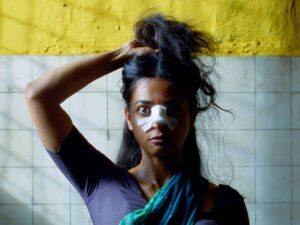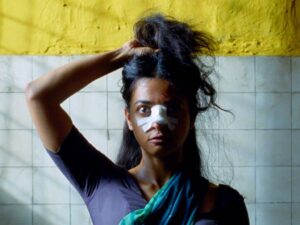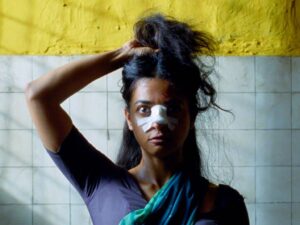
Honoring Souleymane Cissé: A Revolutionary Force in African Cinema
In the pantheon of global cinema, few figures shine as brightly as Souleymane Cissé, the esteemed Malian filmmaker whose work transcended cultural boundaries. Cissé, who left us in February 2025 at the age of 84, was born in Bamako, Mali in 1940 during French colonial rule. His upbringing in a Muslim household fueled his early fascination with film, which blossomed during countless afternoons spent in movie theaters alongside his brothers. Inspired by a gripping newsreel about the assassination of Patrice Lumumba, Cissé recognized cinema’s immense potential as “an extraordinary tool of communication and expression.”
Cissé’s journey as a filmmaker began as he served as a projectionist in postcolonial Mali, leading him to pursue formal training in photography and directing—a path that culminated with a scholarship at the Gerasimov Institute of Cinematography. He emerged as a pivotal figure in African cinema alongside contemporaries like Ousmane Sembène and Sarah Maldoror, fueled by an unwavering determination to portray African culture authentically while shunning the Western narrative lens. Cissé adamantly chose to create his films in Bambara rather than French, marking his commitment to cultural integrity. This bold stance often put him at odds with governmental authorities, but he remained undeterred.
His debut narrative feature, Den Muso (1975), explored complex themes of gender and class in a postcolonial context. The film, which depicts a young mute girl who faces abandonment after a horrific assault, employs a visual language rich in symbolism—cramped settings, harsh lighting, and deliberate blocking emphasize the protagonist’s isolation without the need for spoken words. As Cissé articulated in a 2023 interview, “The image, the discovery of the image, is of utmost importance to me,” a sentiment evident in every single shot of his work.
While Den Muso faced a ban in Mali for its challenging subject matter, Cissé’s courage as a filmmaker only intensified. Following his wrongful arrest on dubious charges of accepting foreign funding, he used his imprisonment to develop his next project, Baara (1978), which explored the interplay between labor and capital in his nation. Cissé’s films consistently featured sharp critiques of political and economic structures, confronting the realities of life in Mali and advocating for social justice.
His 1982 film Finye addressed the oppressive military regime’s impact on Malian youth, intertwining personal struggles with broader socio-political turmoil. Though trained in a style akin to Soviet social realism, Cissé drew inspiration from the spiritual traditions of his ancestors, presenting resistance not just through linear narratives but through the metaphysical connections that bind characters to their heritage.
Cissé’s global breakthrough came with the acclaimed Yeelen (1987), which garnered the Jury Prize at the Cannes Film Festival—an unforgettable moment that propelled Cissé into the consciousness of international viewers. This recognition catalyzed a wider appreciation of his work, leading to a series of achievements that included recognition at the Palme d’Or competition and screenings of his films at prestigious festivals around the world.
Even as Cissé garnered accolades and honors, including the Carrosse d’Or at Cannes in 2023—a testament to his career’s significance—his true legacy lies not merely in his awards but in the indelible imprint he left on cinema in West Africa. Cissé played a vital role in positioning Mali as a cinematic hub, influencing a new generation of filmmakers and inspiring works that resonate with themes of identity and resistance.
Souleymane Cissé was not just a filmmaker; he was a storyteller in the truest sense. He understood that film has the power to elevate consciousness and instigate change. His conviction that cinema was a pathway to liberation echoes in the work of many contemporary filmmakers who draw from his innovative style.
When he passed away unexpectedly on February 19, Cissé was poised to chair the jury at FESPACO, Africa’s oldest film festival. Until the end, he was dedicated to nurturing the film landscape in Mali. Renowned as “Africa’s greatest living filmmaker,” his visionary contributions to the medium will endure, reminding us all of the potential for cinema to reveal new ways of being. Souleymane Cissé spent half a century teaching us how to wield the camera as a tool for imagination, and now, it is our responsibility to continue that legacy.



